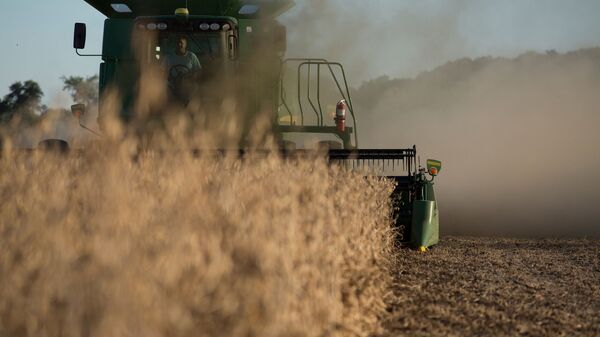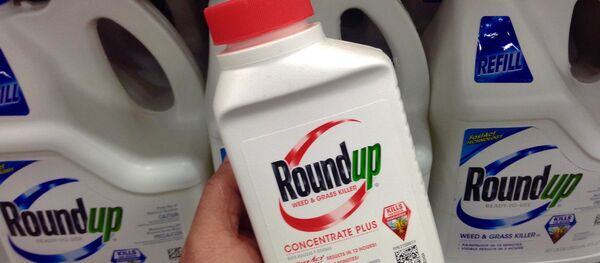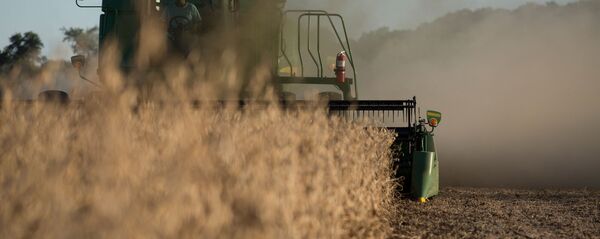"The problem most farmers have is they can't decide what to plant," Burkett told Radio Sputnik's By Any Means Necessary on Thursday. "And even with the weather factor we have in the South, floods and rivers running over, it's a difficult situation as to what to plant [and] how you plant."
Burkett, who previously served as the board president of the National Family Farm Coalition, noted that he ultimately decided to not plant any crops for this year as a result of the uncertainty that the US' trade war with China has presented.
Both countries have been engaged in an intense, tit-for-tat game for several months ever since the Trump administration announced that it would be imposing a 25% tariff on some $50 billion worth of Chinese goods in June 2018.
Farmers began bearing the brunt of the hardship after Beijing retaliated against the various rounds of US tariffs by placing its own taxes on US agricultural commodities such as soybeans, which represent the largest US export to China. In 2018, the US soybean industry had a value of some $12.4 billion, according to USA Today.
The seasoned farmer told hosts Eugene Puryear and Sean Blackmon that "China was the biggest buyer of American soybeans," and that now, as a result of the ongoing trade war, farmers are being forced to grow different crops. However, therein lies another problem.
"You just don't know whether to plant cotton or soybeans or corn," Burkett said, before noting that farmers also have to take into consideration the costs of equipment, chemicals and, of course, seed.
"The situation is to decide what to do."
And the matters of farming equipment and seeds aren't the only issues that farmers have to consider. Burkett told Puryear that prior to the trade war, farmers were already dealing with problems of concentration — when a small group of companies control the whole of food production and consumption in the US, which squeezes out local, rural farmers trying to make it in the business.
"In my town it's almost impossible for a small farmer to get any supplies," Burkett said. "Now, you only have one supplier in the whole town that can supply you with chemicals [and] seeds."
"For many farmers… this whole tariff deal is putting more pressure on the marketplace, and many farmers just don't know what to do about it," he stressed.
According to Burkett, in order to help struggling farmers, lawmakers could launch new programs that offer some guarantees when it comes to crops. "It's a serious impact on rural America… crop loss, economy loss, not enough money circulating in the rural areas, he said.
"What you need are programs that guarantee a farmer a cost of production of different commodities with a profit, not necessarily to control the acreage or the production… but it has to be some type of control where a farmer knows if he's going to plant 500 acres of soybeans or corn or wheat."
Burkett also notes that programs should be launched in order to keep small-time family farms thriving. "It has to have a total restructuring of agriculture systems in this country," he said.
According to US Agriculture Secretary Sonny Perdue, the first payments will be issued in July or August, with the second round following in November. The third round is expected to be processed sometime in early 2020. The direct payments will be delivered on a "county-by-county basis," and the amounts will be determined by how severely each county has been affected.






